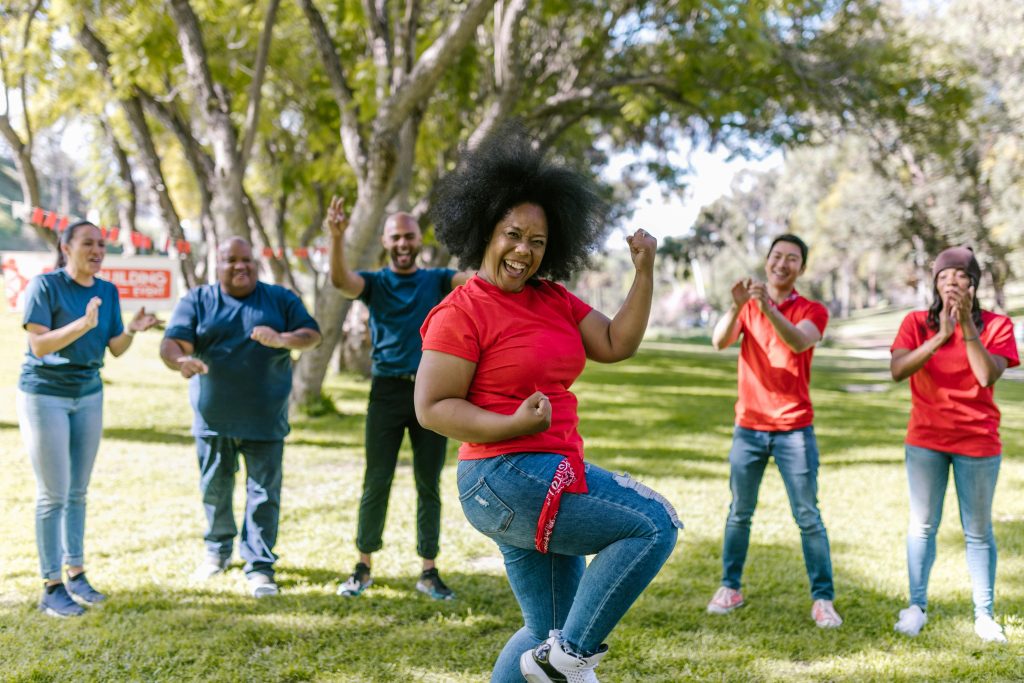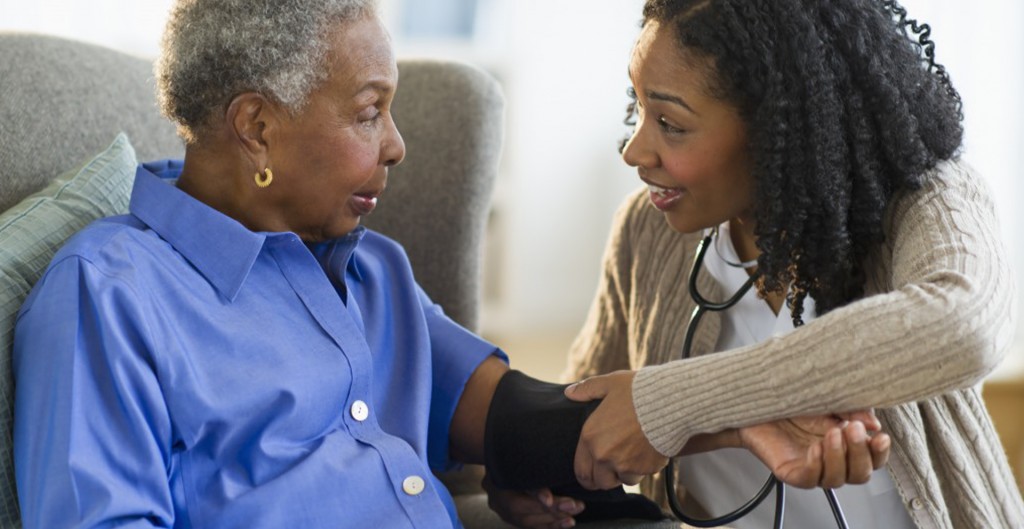Optimal Exercise Routines for Afro-Caribbean Individuals Over 40 in the UK
Physical activity plays a crucial role in maintaining health and wellbeing as we age, with particular importance for specific ethnic groups who may face unique health challenges.
For Afro-Caribbean individuals over 40 in the UK, a tailored approach to exercise that considers both national guidelines and cultural preferences can enhance adherence and effectiveness.
The following comprehensive analysis outlines evidence-based recommendations for optimal exercise routines specifically designed for this demographic.
UK Physical Activity Guidelines for Adults Over 40

The UK Chief Medical Officers’ guidelines provide a foundational framework for physical activity that applies to all adults, including those of Afro-Caribbean heritage. These guidelines recommend that adults over 40 should aim to be active daily, accumulating at least 150 minutes of moderate-intensity aerobic activity per week. This can be spread across the week, with 30 minutes on at least five days being one effective approach. Alternatively, 75 minutes of vigorous-intensity activity, or a combination of moderate and vigorous activities, can provide comparable health benefits.
For those who may be beginning their fitness journey, it’s important to recognize that any amount of physical activity provides health benefits, including maintenance of good physical and cognitive function. This “some is better than none” approach can be particularly encouraging for those who are just starting to incorporate exercise into their routine.
Additionally, the guidelines emphasize the importance of muscle strengthening activities involving major muscle groups on at least two days per week. For those approaching or past middle age, activities that improve balance and coordination become increasingly important for maintaining independence and reducing fall risk.
Culturally Tailored Exercise Approaches
Research and community initiatives suggest that culturally tailored exercise programs are particularly effective for Afro-Caribbean populations. Programs that incorporate elements of cultural identity have shown promising results in engaging this demographic.
Dance-Based Workouts
Dance-based exercise routines that incorporate traditional Afro-Caribbean music and movements have proven to be both effective and enjoyable.
Events like the Milton Keynes Afro-Caribbean Fun & Fitness Day have successfully promoted physical activity through dance workouts featuring genres such as Reggaeton, Dancehall, and Bachata.
As Dr. Sheun Oke, an event organizer, noted: “Exercise comes with a negative connotation, we want to show the people what the Afro-Caribbean community brings to fitness”. These dance-based workouts not only provide cardiovascular benefits but also create opportunities for social connection and community building.
Community-Based Programs
Community-centered approaches have shown particular promise for Afro-Caribbean individuals. Programs designed with culturally salient branding and led by facilitators of African or Caribbean heritage can create an environment of collectivism, enjoyment, and support.
These programs often combine physical activity sessions using traditional music with nutrition education that respects cultural food preferences.
Specific Exercise Recommendations
Aerobic Exercise
For Afro-Caribbean adults over 40, a balanced aerobic exercise routine might include:
- Walking groups, which provide both exercise and social interaction.
- Dance-based workouts incorporating traditional music and movements.
- Swimming, cycling, or other lower-impact activities that are gentler on the joints
- Traditional sports popular in Afro-Caribbean communities
The key is to accumulate 150 minutes of moderate activity weekly, which can be broken down into sessions of at least 10 minutes duration. This flexibility allows individuals to fit physical activity around work and family commitments.
Strength Training
Muscle strengthening activities are particularly important for adults over 40 as they help counteract age-related muscle loss. Recommended approaches include:
- Resistance band training, which has been successfully employed in Afro-Caribbean fitness events.
- Bodyweight exercises that can be performed at home without specialized equipment
- Weight training with proper guidance to ensure correct technique
- Functional movements that mimic everyday activities
These activities should be performed at least twice weekly on non-consecutive days to allow for muscle recovery.
Balance and Flexibility
For adults over 40, activities that improve balance, coordination, and flexibility become increasingly important. Recommended approaches include:
- Tai Chi or modified yoga sessions
- Specific balance exercises
- Stretching routines that maintain joint mobility
- Movement practices from traditional Afro-Caribbean dance forms
Health Considerations for Afro-Caribbean Populations
When designing exercise routines for Afro-Caribbean individuals over 40, certain health considerations merit special attention. Dr. Oke highlighted that obesity is a “big problem” in the UK, and noted that her own mother had succumbed to diabetes.
These health concerns are particularly relevant for Afro-Caribbean populations who may have higher rates of certain conditions including hypertension and type 2 diabetes.

A well-designed exercise program can help address these specific health risks. Regular physical activity has been shown to improve insulin sensitivity, reduce blood pressure, and assist with weight management – all critical factors in reducing risk for these conditions.
Social and Community Aspects
The social dimension of physical activity should not be underestimated for Afro-Caribbean individuals over 40. As emphasized in successful community initiatives, exercise programs that incorporate social elements can enhance enjoyment and adherence.
Options that incorporate this social dimension include:
- Guided walking groups, such as those run by local Black grassroots organizations on weekends
- Community-based fitness classes with culturally relevant music and movements
- Family-oriented physical activities that span generations
- Sports leagues or recreational teams for older adults
As Dr. Oke aptly stated regarding the community fitness event: “You’re laughing, you’re smiling, you’re connecting with other people – that’s what this is all about”.
Practical Implementation and Sustainability
For any exercise routine to be effective, it must be sustainable. For Afro-Caribbean individuals over 40 in the UK, this means finding activities that are enjoyable, accessible, and compatible with existing commitments and preferences.
Some programs have successfully implemented a comprehensive approach that extends beyond exercise to include nutritional guidance, such as “cook and taste” sessions where traditional African and Caribbean recipes are adapted to contain less salt, sugar, and fat while incorporating more wholegrains and vegetables. This holistic approach recognizes that physical activity is just one component of overall health.
Conclusion
The optimal exercise routine for Afro-Caribbean individuals over 40 in the UK follows national guidelines of 150 minutes of moderate activity weekly, with twice-weekly strength training and regular balance exercises. However, the most effective approach incorporates culturally relevant elements such as traditional music and dance, community-based activities, and social support systems.
Programs led by individuals from within the community, that recognize cultural preferences and address specific health concerns prevalent in Afro-Caribbean populations, show the greatest promise for long-term adherence and health benefits. As with any exercise program, individuals should start at an appropriate level for their current fitness and gradually increase intensity, seeking medical advice if they have existing health conditions.
Ultimately, the best exercise routine is one that becomes a sustainable and enjoyable part of daily life rather than a burdensome obligation – a philosophy captured by Dr. Oke’s mission “to put the fun back in fitness while helping a good cause”.
Citations:
- https://www.nhs.uk/live-well/exercise/physical-activity-guidelines-for-adults-aged-19-to-64/
- https://www.pictongreenfamilypractice.nhs.uk/patient-health-information/exercise-advice/
- https://fingertips.phe.org.uk/profile/physical-activity/data
- https://www.ethnicity-facts-figures.service.gov.uk/health/diet-and-exercise/physical-activity/latest
- https://assets.publishing.service.gov.uk/media/611cd4188fa8f53dcf15655e/PHE_Inequalities_in_physical_activity_August_update_Final.pdf
